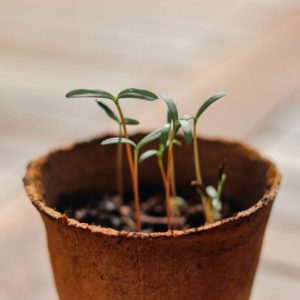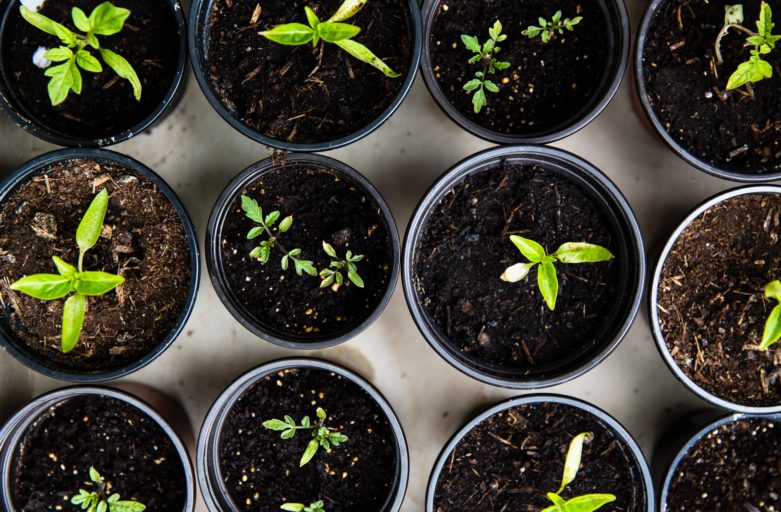It’s true, I could talk for hours and hours about environmental sustainability (hence, the genesis of this blog). There exists within me a zeal and fervor to do my part to protect the beauty of the natural world, not just for the sake of Mother Earth herself, but also for the good of all who live upon her. You could call me (affectionately) a bit of a tree hugger. But my ardor for arbors was not always ingrained in me. My romance with the environment could be better described as a slow burn, so slow I almost didn’t notice it was happening.

The seed was planted in middle school when our class was given the assignment of creating a flyer to promote the three R’s of sustainability – say them with me – Reduce, Reuse, Recycle. The assignment was actually a contest, where the winner’s piece would be used at some local community project. I honestly don’t remember if I had won or not, but I enjoyed working on this assignment enough for it to have stayed with me years later.
From that point on, I gradually became more conscious of my recycling habits until it became second nature. (It wasn’t until more recently that I learned that I may have been doing it wrong and that recycling is not quite all that it’s cracked up to be, but more on that later). So I figured I was set – I am a recycler; I’m doing my part – which meant that I could add “environmentalist” to the descriptors of my developing identity.
For a good while I felt that recycling was all that was required of me to be a steward of the environment. The older I got, the more cognizant I became of climate change and its real life effects. But I was still naïve and blissfully ignorant of what could be done or what needed to be done to really move the needle. It wasn’t until mid high school and early college that the slow burn of my passion started to really ramp up to the fiery passion it is today. As I was growing and maturing, my worldview was evolving with me. The more I learned about the current state of the environment – carbon footprints, excessive waste, worsening natural disasters, ocean pollution, etc. – the more I realized I wanted to do more. My lifestyle habits started to shift.
The problem is that living an environmentally friendly lifestyle is, ironically, not a walk in the park. Alternative “green” products are often more expensive and less accessible than their conventional counterparts. Sustainable behaviors are sometimes less convenient or require more conscious effort. Minimalism, reduction, and sustainability – they all seem to fly in the face of almighty capitalism, the lifeblood of the developed world. Let’s face it, if it was easy, more people would be doing it, right?
There’s a prevailing misconception that caring for the planet requires great self-sacrifice, saying goodbye to certain creature comforts. Admittedly, that is sometimes true – there are sacrifices that need to be made. But what is misconstrued is the degree of that sacrifice. In reality, small actions can make a big impact, especially in regards to the collective.
“Vegetarian? No way. I couldn’t up meat. It tastes too good.”
Well, what if you just gave up meat one or two meals a week?
“Electric car? Yea no, too expensive”
Facts, but what if you carpooled or rode your bike sometimes?
“Go plastic free?” What’s the point, there’s already plastic everywhere and in everything.”
Sadly, this is true. But a few select swaps can still do good.
It might be cliché to say that “every little action counts” and yes, when you look at the big picture, it is easy to doubt the significance of, say, refusing a plastic straw. But if everyone in the US were to refuse a plastic straw just once, that would eliminate over 350 million straws from the landfill. And of course, I don’t expect that specifically to happen but it does illustrate the power of the collective. Heck, if even just the readers of this blog post started to use less plastic straws over the course of their lives, that could save hundreds of straws, and I would happily call that small action a victory.
small actions can make a big impact
The concept of living a truly environmentally sustainable life is really daunting – even for me, the admitted environmentalist. For the purpose of achieving my own personal sustainability goals, I read + watch + follow other internet content creators. Their lives and practices both inspire me and hinder me. On the one hand, I want to do what they do, make as much of an impact as they have. On the other hand, it’s been about a decade since I made the conscious decision to do better for the environment and still my life remotely scarcely theirs. There are times when I look at what they do as just a lofty dream that I couldn’t achieve, thinking I could never devote that much time and effort because life would just get in the way.
I made the decision to avoid single-use plastic bags as much as possible, but I still forget to bring my reusable bag often. I know that fast food is riddled with single-use-landfill-supply and I tried to cut down but nothing beats the convenience of fast food or takeout when you’re too tired or don’t have the time to cook. Time and time again, I set expectations and desires for myself to move toward sustainable living, but I still struggle and fall.
I want to protect the environment and I struggle. How do I suppose I could get more people to act sustainably who don’t even have the same want and motivation? Well, honestly, I don’t know yet. But I am hoping that this blog, where I will detail my step-by-step journey towards sustainability, being honest about my struggles and the roadblocks that I face, will inspire others and provide an accessible lifestyle that one can emulate without it feeling like a daunting, unachievable goal.
the concept of living a truly environmentally sustainable life is really daunting
Not everything is going to be Instagram pretty – with metal straws in mason jars and succulents in upcycled planters. It’s going to be an odyssey of trial and error. I already know now there will be some actions that won’t stick and others that will. And I certainly don’t presume to know everything there is to know about sustainability (at least not yet), but I have the passion to learn and to share that knowledge with others. I want this to be a community where we all learn together, support each other in our efforts, and share ideas so that we can all do better.
Another strong motivator in the birth and growth of this blog is representation. Unfortunately, I don’t see a lot of diversity in the sustainability space. Most of the people I follow for inspiration and ideas are middle-class, white women. Ironically, there are throngs of environmental advocates that exist outside of that demographic. As an Asian American myself, I yearn for better representation of minority groups, in any space. Environmental equality, racial equality, social equality… it’s all intertwined. One cannot fully understand environmental justice without talking about the groups of people who are impacted the most. I make it a point to look for and follow more influencers of color and I want to add my own minority voice to the conversation.
The name of this blog is Live Your Best Green, which was inspired by my belief that environmental sustainability is not one-size-fits-all. Each person’s sustainability journey is going to look different from another’s. I want people to be empowered to make eco-friendly choices without sacrificing their own personal joys. Maybe you like shopping and so minimalism is not for you, but you’re willing to learn more about ethical manufacturing and supply chain to inform better shopping choices. Maybe composting is not for you because you don’t have the means or the time, but you can learn to store your food well and use up all leftovers to avoid food waste. These are just a couple examples, but if you stick with me through this blog, I can guarantee that you will find some action (or actions) that you can incorporate into your own unique lifestyle and feel good about it. Rather than letting sustainability be just a responsibility, let it enhance your life.
Live your best Life. Live your best Green.

